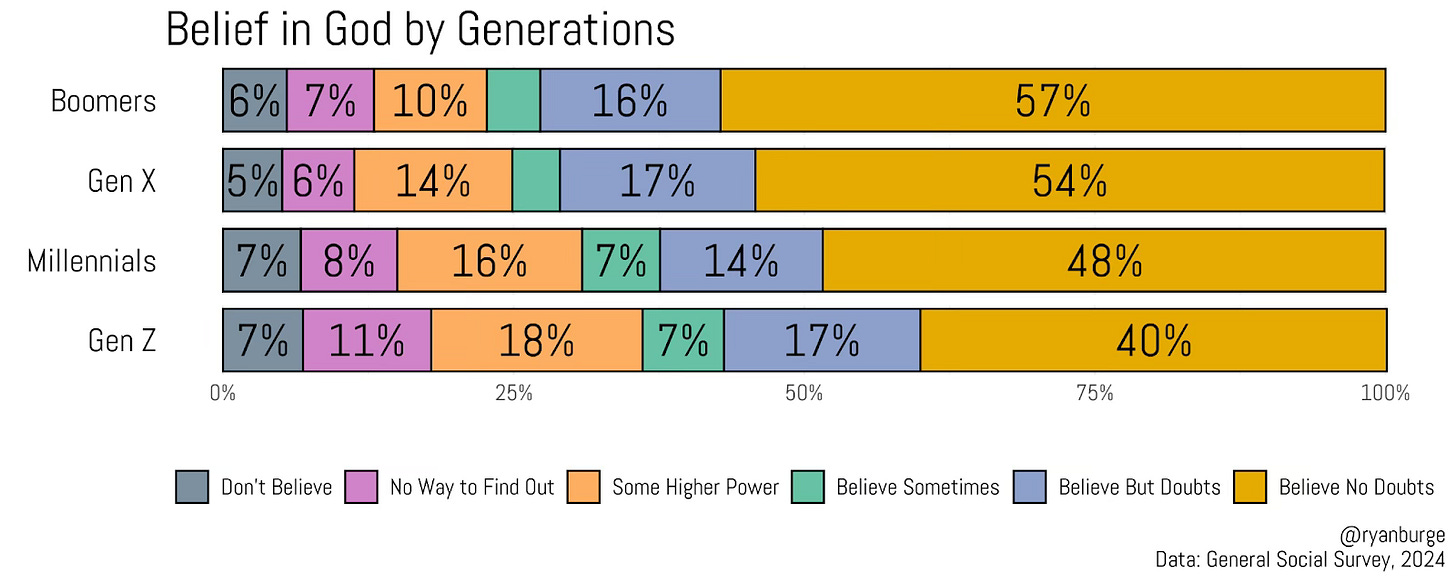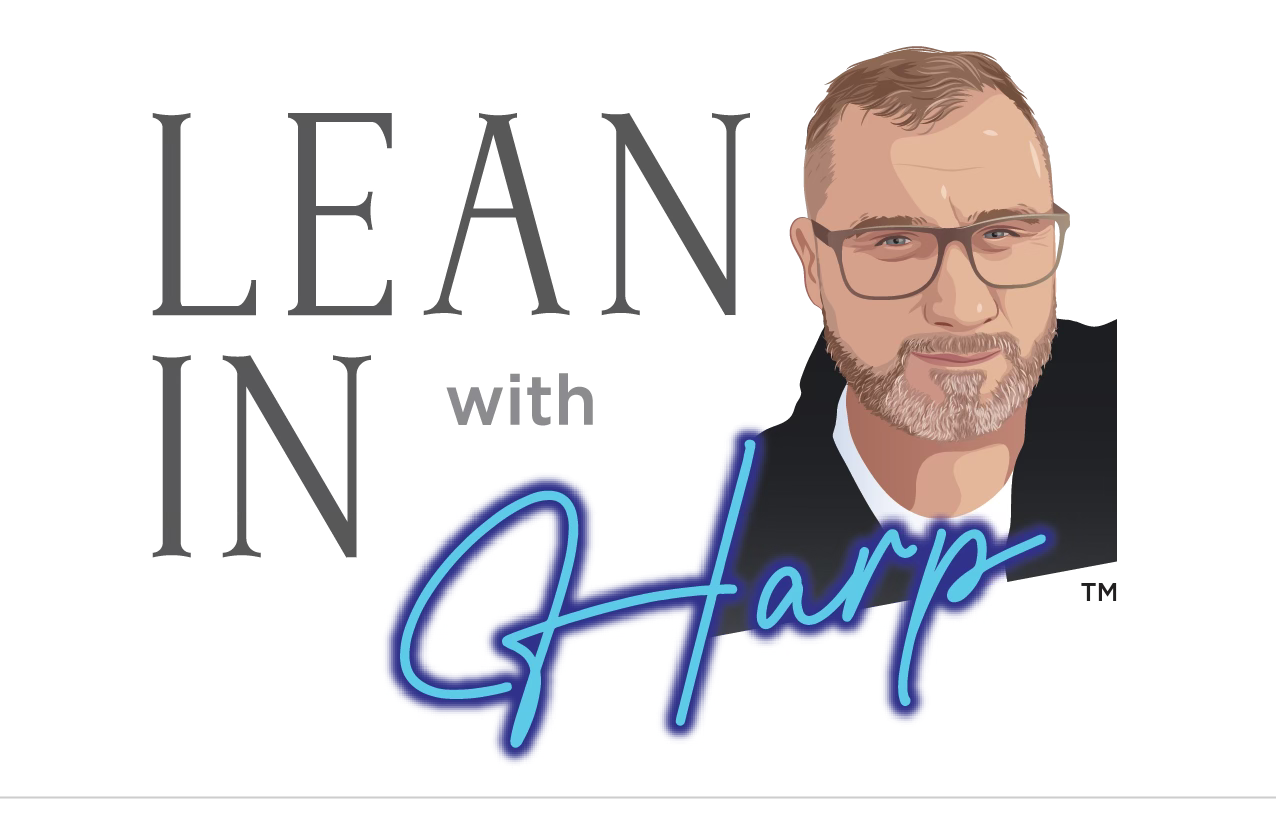One Good Thing This Week
Hard work and a reliable friend often make for a good day.
The alternator went out on my wife’s minivan. The mechanic wanted $1,300 to fix it.
Nope. I called my friend, Colby.
Colby is the kind of guy you can lean on. Broad shoulders [literally and metaphorically], strong hands, and a sharp mind. I purchased an alternator, and 2.5 hours later, we were taking everyone for ice cream.
I spend most of my days in a tidy, polished cocoon. You could call it a laundered life: sterile gym, shiny truck, and a glassy office. Standing next to Colby, next to a humming 2014 Honda Odyssey, covered in grease and grim, is the best I’ve felt in years. Why? Because working with your hands does something to your soul.
Working with your hands connects you to something real. In a world of screens and shortcuts, building, fixing, and creating with your hands grounds you in truth. It reminds you that your effort matters, that results come through sweat, not clicks.
When a man works with his hands—mowing, digging, hammering, wrenching—he feels the weight of responsibility and the reward of completion. It’s physical and spiritual. You’re not just shaping wood or soil, you’re shaping yourself. Pride fades. Gratitude grows. Entitlement dies. Discipline rises.
God gave Adam a garden, not a couch. God knew that nothing awakens a man like meaningful labor. There’s something sacred in calloused hands and tired muscles. Work done with your hands reminds you: you are a steward, a builder, a man made to cultivate. A man made in the image of God.
And when the job is done—when the lawn is cut, the board is nailed, the engine is running—you stand a little taller. Not because it was easy, but because it was good.
Pro-tip: If you spend your week working with your mind, sabbath with your hands. If you spend your week working with your hands, sabbath with your mind.
**BTW: Don’t forget, God’s man, a real man, excels at God’s WORK
Something Beautiful This Week
I learned of Robert Robinson this week. Robinson wrote one of my all-time favorite hymns—he penned 'Come Thou Fount' when he was 22 years old.
As a teenager, Robert’s father died, and his mother sent him to live with relatives in London. Soon after, he joined a street gang, doing 'hoodrat stuff with his friends…' One day, hearing that noted preacher, George Whitefield, was in town, and wanting to disrupt the gathering, they went to harass and embarrass Whitefield. God had other plans. It was under Whitefield’s preaching that Robinson would be converted. He would soon after write "Come Thou Fount of every blessing, Tune my heart to sing Thy grace. Streams of mercy never ceasing, Call for songs of loudest praise…"
Years later, Robinson would stray from the Lord. One day, feeling dejected and unloved, he boarded a carriage where he met an older woman. She began humming, lightly singing Come Thou Fount. Robinson was visibly moved, and the woman asked if he was okay…
"No, I am not," he replied. "In fact madam, I am the poor unhappy man who wrote that hymn many years ago, and I would give a thousand worlds, if I had them, to enjoy the feelings I had then."
The lady gently smiled, placing her hand on his knee, and said, "The streams of mercy are still flowing…"
In that moment, the love of God was rekindled in Robinson’s heart. He would continue in the service of the Lord, writing and preaching until his dying day.
Something Worth Imitating
In 1987, Wendell Berry [one of my personal heroes] was living on a farm in Kentucky. Wendell wrote everything by hand [pen & paper]. His wife, Tanya, would create typewritten drafts of his manuscripts on a Royal standard typewriter that was purchased in 1956. Wendell long argued that the Royal was, "as good now as it was then."
His friends told him he needed a computer—that a computer would make writing easier. In response, Berry compiled a list of nine reasons to adopt new technology. Number 9 is especially relevant today [smartphones, social media, and OpenAI].
Berry’s criteria are worth imitating [and adopting]:
My 3 Favorite Quotes of the Week
"Don’t scream where Scripture whispers…" — Corey Barton
"'I’m like a sick sheep,' Jerome wrote, 'and unless the Shepherd carries me, I’ll collapse.' Most of us don’t need strength. We need to let ourselves be carried." — Jerome by way of
"Jesus never mentions 'goals' in His Kingdom. What He calls us to are small faithful works, which He multiples." — Anonymous
Stat(s) I Found Interesting This Week
Everyone [in the evangelical world] seems to be talking about 'revival.' Burge does a masterful job of explaining why:
The first [reason] is pretty simple—people of faith want to believe that there’s a revival right around the corner and they want to be a part of it. Every Christian hears about stories of mass conversion events and wants to believe they could witness that type of history.
The other is subtler. It’s people who don’t feel strongly about religion one way or the other, but are just tired of hearing more stories about religious decline. Thus, any indication that Gen Z is returning to religion would bring about a change in the dominant narrative.
Burge unpacks the trend(s) HERE using the most current data. But, for those who want the cliff notes, the reality is we still have a lot of work to do…
My Favorite Pic This Week
In his 1960 poetry collection Dreamtigers, Jorge Luis Borges wrote:
"I have always imagined that paradise will be a kind of library."
I think Jorge was right. Below are a few pics of 'heaven on earth…'
Trinity College Library, Dublin, Ireland
Royal Portuguese Cabinet of Reading, Brazil
Admont Abbey Library, Austria



Book(s) I Read This Week
Read Formed for Fellowship by Kyle Worley this week. It turned about to be a surprisingly good primer on the Christian life. The chapter/section on story is really well written. On a personal level, the story we believe about ourselves sets the vision, values, and agenda of a man’s life. In Tolkien's masterwork, Lord of the Rings, Samwise Gamgee poses a profound question to Frodo: "I wonder what sort of a tale we've fallen into?"
Kyle does a tremendous job comparing and contrasting life’s two tales: the one true story [God’s story] and the false stories we fall into…
Romanticism: The story that says, 'You are your emotions.' The more intense the emotion, the more authentic it is. The good life is authenticity.
Consumerism: The story that says, 'You are what you have.' Worth is based upon the value and quality of what you own [or have access to]. The good life is having great things.
Pragmatism: The story that says, 'Whatever works must be true.' The good life is productivity, functionality, and practicality.
Individualism/Hedonism: The story that says, 'You are at the center of all things.' Autonomy is prized over all things because the self and its pleasure is the goal of this story. The good life is the authority of the independent individual.
Perfectionism: The story that says, 'You must be perfect in order to be accepted.' The good life is found in success.
American Religion (Moral Therapeutic Deism): The story that says, 'Christianity should be comfortable and painless to live.' The good life is at the corner of ease and prosperity.
Steve Jobs once said, "The most powerful person in the world is the storyteller. The storyteller sets the vision, values, and agenda of an entire generation that is to come."
Song(s) I Listened To This Week
One of my favorite morning jams. JJ is built different.
What God Taught Me This Week
"Do your best to come to me soon." — 2 Timothy 4:9
I had breakfast with Tommy Nelson this week. I love that man. After 40 years [at one church], he stepped aside last week. When asked, "What are you most proud of?" without hesitation, he talked about his 'Young Guns' program, the nine-month one-on-few discipleship program he ran for decades. A man who has done it all—written best-sellers and preached to stadiums of tens of thousands—it was encouraging to hear that his prize-possession was the few he had discipled.
As if the morning couldn't get better, I asked him what he had learned after more than 40 years of ministry. He took me to 2 Timothy 4 and walked me through the characters. Paul says,
"Alexander the Coopersmith did me great harm [v14]"
"Demas deserted me [v10]"
"Mark has proved useful [v11]"
"Luke alone is with me [v11]"
"Any man who spends any real time in ministry," Tommy said, "will have those four people in his life… some that will hurt you [Alex], some that will disappoint you [Demas], some that will surprise you [Mark], and some who will always be at your side [Luke]. And if you don’t have all of those, you ain’t doing it right…"
Well said.
Tommy, you did it right.
Looking to connect in person? Here are some places I’ll be in the next few weeks:
CyLife Men’s Gathering, CyLife Church, Cypress Texas, July 19
Equip Conference [Texas] SBC, Houston First, Houston Texas, July 26
Sunday Service, Lake Church, Arlington Texas, July 27
Sagemont Men’s Gathering, Sagemont Church, Houston Texas, August 9
Advancing the Church Conference, Southern Indiana/Louisville, August 14-15
Brothers, my pledge to you…
"You will never suffer at my hands. I will never say nor do anything knowingly to hurt you. If you're down and I can lift you up, I'll do that. I will always, in every circumstance, seek to help and support you. If you need something and I have it, I'll give it to you. No matter what I find out about you, no matter what happens in the future, either good or bad, my commitment to you will never change."
For the King,
—Harp
Would you help me spread the word? Hit share at the bottom or top of this email to help others discover my publication. You can also share it with someone. Remember, sharing is caring.







Heard, Chef!
https://substack.com/@egretlane/note/p-167115659?r=5ezmlv&utm_medium=ios&utm_source=notes-share-action